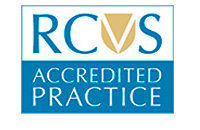24 hour contact: 01707 666297
Equine Vaccinations
Routine vaccination of horses, ponies and donkeys is an essential part of their primary care to prevent some potentially life-threatening diseases.
The RVC Equine Practice recommends regular vaccination against equine influenza and tetanus for most horses, and vaccination against equine herpes virus for horses considered most at risk.
Equine Vaccinations
Register as a client Book an appointment
Equine influenza
Equine influenza is a highly infectious viral respiratory disease, characterised by fever and coughing, which may spread rapidly among susceptible horses. Mildly affected horses usually recover over 2-3 weeks but severely affected cases may take at least six months to recover full health and performance potential.
RVC Equine recommend that all horses are vaccinated against influenza, particularly young and older horses, and horses that leave the yard and encounter others. In the UK, horse racing and performance horse regulators insist upon influenza vaccination to help prevent disruption to their events.
Many governing bodies (e.g. pony clubs, riding clubs, BSJA, British Eventing, British Dressage) require horses to be vaccinated to Jockey Club standards before allowing them entrance to showgrounds.
The standard Influenza vaccination protocol is:
- First injection from six months of age
- Second injection 4-6 weeks later (Jockey Club requirements are 21-92 days later)
- Third injection after six months (Jockey Club requirements are 150-215 days later)
- Thereafter yearly boosters (Jockey Club requirements <365 days)
Horses competing under FEI regulations require influenza vaccines within six months and 21 days of competition. See FEI vaccination requirements for full details.
Tetanus
Tetanus is a very serious, life-threatening disease caused by the bacteria Clostridium tetani.
The spores of this bacteria are found in the soil and can survive for long periods in the environment. Any wound in a horse can potentially become infected with the clostridium bacteria, but contaminated wounds or puncture wounds pose a greater risk.
Unfortunately, horses infected with tetanus rarely respond to treatment so we at RVC Equine strongly advise that all horses are vaccinated against tetanus, regardless of age.
Tetanus vaccination is often combined with influenza vaccination but tetanus only vaccines may be given according to the following protocol:
- First injection from four months of age
- Second injection 4-6 weeks later
- A third injection after one year
- Booster injections every two years thereafter
Mares may be vaccinated in the last month of pregnancy to give protection to their foals. If your horse sustains a wound but is not vaccinated against tetanus, or the vaccinations have lapsed, it is vital that they receive a tetanus anti-toxin injection as soon as possible. This is not the same as tetanus vaccination but it provides short term (2-3 weeks) protection against the disease.
Equine Herpes Virus (EHV)
There are five types of herpes viruses which can affect horses causing a variety of disease syndromes of which EHV 1 and EHV 4 are the most clinically important.
EHV 1 and 4 can cause influenza-like respiratory infections in horses but may also cause abortion in pregnant mares and, less commonly, serious neurological disease.
- The protocol for protection against the respiratory form of infection is:
- First injection from five months of age
- Second injection 4-6 weeks later
- Booster injections every 6 months
To protect against abortion caused by equine herpes virus, vaccinations should be given to pregnant mares during the 5th, 7th and 9th months of pregnancy.
West Nile Virus Equine Vaccination
The West Nile virus is transmitted by biting insects and can result in serious disease in people and horses. West Nile virus causes an encephalomyelitis (inflammation of brain and spinal cord) and once infected, mortality in horses ranges from 20-44%. West Nile equine vaccine is available in the UK and has in the past been recommended for horses travelling internationally to areas where the virus is circulating. Vaccination prevents clinical signs in up to 90% of exposed horses.
Initial clinical signs include fever, excitability or changed behaviour, abnormal or unsteady gate and muscle twitching. Insect avoidance and annual vaccination can protect horses.
West Nile Vaccination Prices (updated 1st August 2025):
The West Nile vaccine is given as initially as two intramuscular injections, 3-6 weeks apart followed by an annual booster.
Prices on application
News update : May 2025
Whilst previously only present in Southern Europe - for the first time, West Nile virus has been detected in mosquitos in the UK. If the disease spread continues, it could pose a risk to unvaccinated horses.

